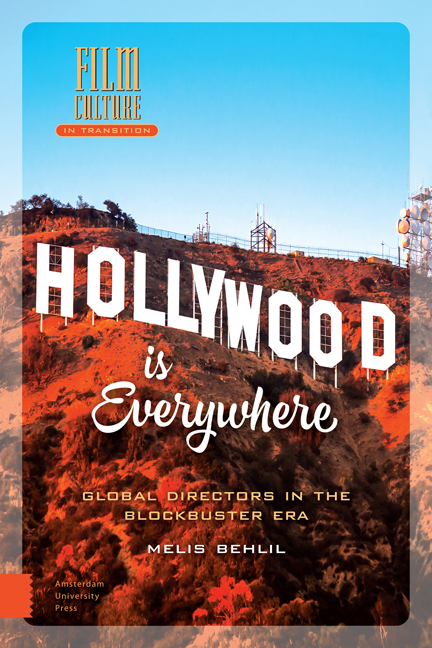Book contents
- Frontmatter
- Dedication
- Contents
- Acknowledgments
- Introduction: Hello Hollywood
- 1 Defining Hollywood
- 2 Cultural Work in a Globalizing World
- 3 Histories and Geographies of Global Directors
- 4 A View to a Franchise: James Bond
- 5 “Once More with the Volume Up”: Auto-remakes
- 6 I Want My MTV: Advertising and Music Videos
- 7 Conclusion: “Everywhere is Hollywood”
- Notes
- Bibliography
- List of Directors
- Index of Film Titles
- Index of Names
- Index of Subjects
- Film Culture in Transition
2 - Cultural Work in a Globalizing World
Published online by Cambridge University Press: 10 December 2020
- Frontmatter
- Dedication
- Contents
- Acknowledgments
- Introduction: Hello Hollywood
- 1 Defining Hollywood
- 2 Cultural Work in a Globalizing World
- 3 Histories and Geographies of Global Directors
- 4 A View to a Franchise: James Bond
- 5 “Once More with the Volume Up”: Auto-remakes
- 6 I Want My MTV: Advertising and Music Videos
- 7 Conclusion: “Everywhere is Hollywood”
- Notes
- Bibliography
- List of Directors
- Index of Film Titles
- Index of Names
- Index of Subjects
- Film Culture in Transition
Summary
In 2000, David Hesmondhalgh questioned why the study of “cultural” work had been marginalized. Since then, a significant body of work has emerged on “production studies” within cinema studies, examining the conditions of labor within different levels of production in Hollywood and elsewhere. Many new developments shaped labor in Hollywood over the last decades of the century, but these changes did not happen in a cultural vacuum, nor should they be addressed in one. It is therefore imperative to consider the wider discourses on globalization that frame these discussions. A ubiquitous keyword in the social sciences in the 1990s, globalization commands a vast literature. This being a book on cinema, I refrain from making an extensive review of this literature, and focus only on some of the relevant approaches. Globalization has often been, and still is, discussed with reference to three main dimensions: the political, the economic and the cultural. And in almost every single discussion of cultural globalization, Hollywood is mentioned, whether in celebratory or accusatory fashion. Hollywood has not only been transformed by processes of globalization, but it is also seen as one of the leading forces that made globalization possible in the first place.
Definitions, Debates, Dimensions
While various definitions highlight different aspects of globalization, there is widespread consensus that it is a multifaceted process that entails greater integration across the world. David Held and Anthony McGrew point out that the material aspects of globalization, namely “flows of trade, capital and people across the globe” are facilitated by “physical (such as transport or banking systems), normative (such as trade rules) and symbolic (such as English as a lingua franca)” infrastructures. In this sense, “globalization refers to these entrenched and enduring patterns of worldwide interconnectedness.” This clearly includes global media networks and the language of popular cinema that is understood by audiences worldwide. Anthony Giddens stresses the dialectical nature of the process, defining globalization as “the intensification of world-wide social relations which link distant localities in such a way that local happenings are shaped by events occurring many miles away and vice versa.” Referencing shrinking spaces and more intense interaction, David Held et al.
- Type
- Chapter
- Information
- Hollywood is EverywhereGlobal Directors in the Blockbuster Era, pp. 41 - 54Publisher: Amsterdam University PressPrint publication year: 2016



